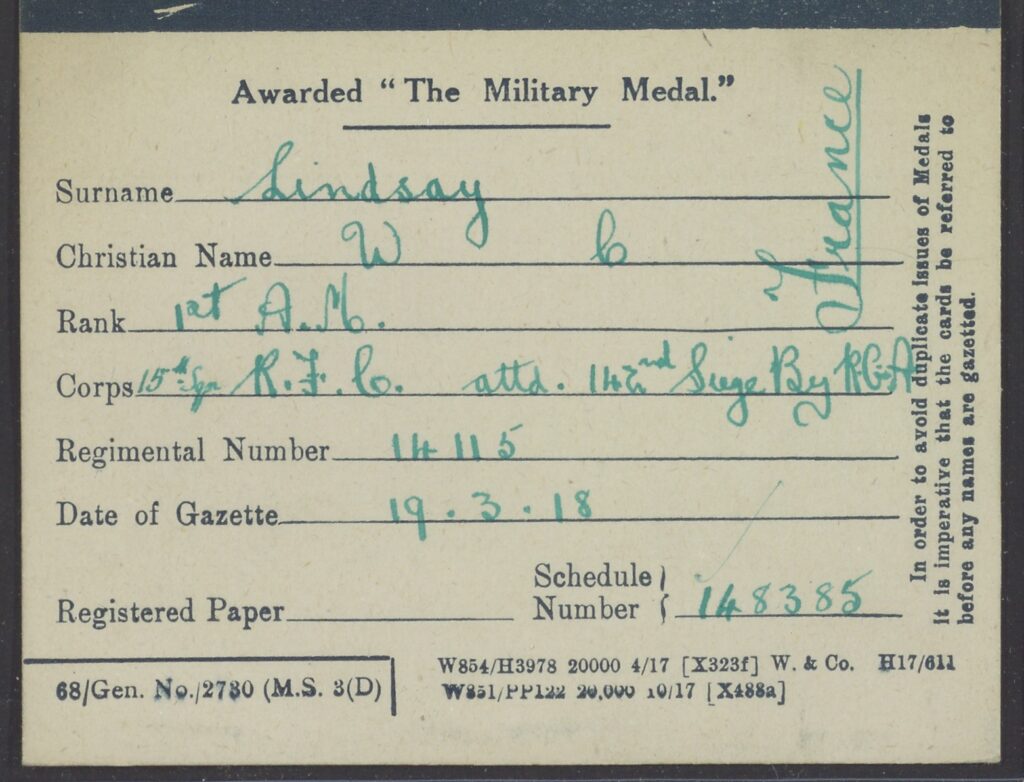My first byline in a national magazine appeared in the August 8, 1995, issue of Woman’s Day under the headline “What’s Sabotaging Your Diet?” Woman’s Day, that bastion of the checkout line, was known for unironic covers featuring decadent desserts under headlines about healthy eating. This particular issue’s cover featured the title of my article over a photo of a chocolate cake frosted to look like a sunflower.
I was 23, newly married, living in a studio in Brooklyn, and making $18,000 a year. I’d been an editorial assistant at the magazine for eight months and was eager for my first story. When the features editor said she needed a writer for a diet piece, I stuck my hand in the air.
Almost as much as the byline, though, I wanted the advice. I was just under 200 pounds at the time and anxious to avoid crossing that dietary Rubicon. For the story, I talked with doctors and dietitians and got their best tips on staving off cravings, eating healthy, and keeping the number on the scale from creeping up any further than it had already.
None of it helped.
For years magazines assigned me similar stories while I continued to gain weight. In the ’90s and early 2000s, women’s magazines wanted as much diet content as they could print. For me that meant an extra source of income to supplement my meager pay, not to mention a career boost for an ambitious young writer.
My byline appeared under such headlines as “Prime Time for Pig-Outs,” in Fitness, and “Facing Fat,” in Self. I wrote so many diet and nutrition articles that I was even hired as an editor at the Journal of the Academy of Nutrition and Dietetics, of all places, writing more scientific fare, such as “From Aspartame to Xenical” and “Type 2 Diabetes on the Rise in Children.” At the same time, undone by emotional eating and stress, I gained an additional 30 pounds.
No one has ever known so much about healthy eating and been less successful at following her own advice. For more than three decades, I fought a losing battle with weight gain. At its worst, in March 2017, my weight hit 298 pounds, a number I can’t believe I’m writing down for the world to see. At 5 foot 8, I now had a BMI of 45. Obese.
I’ve never admitted my exact weight to anyone other than my doctor—even my husband didn’t know. Still, no one but me was ever fooled. I lived under the delusion that if I never told anyone, the number would not exist. I know what the world thinks of fat people. I’ve endured the way people eye my cart at the grocery store, how they watch what I order in restaurants. People never stop asking me if I’ve tried this or that latest dieting fad. The answer—always—is yes.
I went through the low-fat craze, the low-sugar craze, the low-carb craze. I swore off eating after 7 p.m. I fasted intermittently. I tried Herbalife, SlimFast, Seattle Sutton, Nutrisystem, Weight Watchers, even a doctor-supervised weight clinic with expensive pills and powders. I joined gyms, signed up for a Couch to 5K race, bought a bike, bought a yoga mat, bought an elliptical trainer. Nothing worked. I would put in weeks or months of teeth-grinding work starving myself and exercising to lose 20 or 25 pounds, then watch it come back a couple of months later.
Then, in September 2023, my doctor handed me a prescription for Mounjaro, a diabetes drug that, when used off-label, has been found to help patients lose weight. Mounjaro, like Ozempic and Wegovy and others, mimics the hormone GLP-1, which works to suppress appetite. Since I began taking the drug, I’ve lost almost 80 pounds with very little effort.
Medical science has done what no diet-and-exercise plan ever could, changing my entire relationship with what I eat and when and why.
I didn’t grow up fat, but I did learn how to diet at a young age, probably much too young. I was 9 or 10 the first time I restricted my meals, usually skipping breakfast, sometimes lunch too. I was an average weight, so no one suggested it to me. I just did it. I liked the ascetic feeling of missing a meal, that tightness in the gut. At 12 and 13, I would exercise to the VHS tape of 20-Minute Workout with my mother and my sisters. It was just something everyone did, part of learning to be an adult. In high school, I learned to cook. My mother would often leave instructions so dinner would be hot when she got home from work: spaghetti and salad, grilled chicken and roasted veggies, tacos. Usually the only indulgence in our house was my mother’s unappetizing low-fat ice-cream. It was easy to eat healthy when few of the food decisions were up to me. My senior year of high school, I weighed 132 pounds and wore a size 10.
I didn’t think much about food because I didn’t have to. But unlike some friends I know—who don’t care at all what they eat, who treat meals like brushing their teeth, a necessary form of self-maintenance that doesn’t require much attention or result in much pleasure—I’ve always enjoyed food. I like the crunch of sunflower seeds on my salad, the melt of cheese on a burger.
When I was in college, I took a part-time job at McDonald’s. I could walk there and, hey, meals were included. The freshman 15 suddenly turned into 30. I took a weight-lifting course and swam laps and bought a bike. I quit my fast-food gig for a part-time office job. Though the weight gain slowed, it never stopped.
Throughout my 20s and 30s, I gained five to 10 pounds a year, a result not of frequent pig-outs but of small, daily failures: that one extra piece of pizza, a couple of Oreos after dinner, a slice of the office birthday cake. If I skipped breakfast, I would be ravenous by 11, with shaking hands and a foggy brain and no self-control. The author of “What’s Sabotaging Your Diet?” knew that missing breakfast was a problem, but if I was in a hurry to get out the door, sometimes I did just that.
One of my worst triggers was bedtime. I can’t count the number of nights I lay in bed unable to sleep from hunger until I gave in and had a piece of toast, a little peanut butter. The author of “Prime Time for Pig-Outs” knew that eating late at night was bad, but I could either eat something or suffer insomnia.
Stress could also trigger emotional eating. That job at the journal turned nightmarish when new management took over, fired the beloved editors I’d worked for, and put me in (temporary) charge of publishing the entire publication with a depleted staff. I was up at 6:30 a.m. and in bed at midnight, with no time in between for exercise or cooking, shoveling food in like a zombie between meetings.
By the time I quit that job, I was 245 pounds and I was miserable. I had been interviewing experts and publishing diet and nutrition advice for almost a decade, and for just as long I’d been failing to make any of it work for me. I felt like the world’s biggest hypocrite. I started to think, Maybe this is it. Maybe I’m just going to be fat forever, and there’s nothing I can do about it.
Diet is a word that now seems old-fashioned, like that wine-and-egg plan from Vogue that sometimes still circulates on social media, a holdover from a bygone era, along with pantyhose and memorizing phone numbers. Today we talk about healthy lifestyles, mindful eating, about getting fit and taking care of our bodies. Or we reject weight loss as a goal altogether, embrace body positivity, fat acceptance, health at any size.
Dieting is out and self-love is in, except that it isn’t, not even close. The old women’s magazines are gone, for the most part—victims of a changing media landscape—but on Instagram and TikTok and Facebook and everywhere else, people are still looking for solutions. Give me something that works, they ask. Please.
For years I wasn’t writing the diet articles just for readers; I was writing them for myself. I was both a cog in the toxic diet-media complex and its reason for existence. Each time I would hold out hope that the next recommendation would unlock my weight-loss success. I couldn’t blame the magazines or their readers for wanting it too, the one bit of advice that would work for them, that would finally make a difference.
I would try, and fail, and try again. And I was getting very tired of failure.
The first time my doctor mentioned bariatric surgery, I was desperate enough to consider it. I learned that in addition to losing part of my stomach, I would need to stick to a liquid diet both before and after surgery, and that some people experience severe side effects.
Because losing body parts seemed a bridge too far even for me, I tried healthy-at-any-size acceptance instead, which was fine until it wasn’t. Last year at my annual checkup, my doctor told me that I was at risk of diabetes. As he poked at my toes, checking for gangrene, I decided I no longer had room for delusions. A friend had been telling me about Wegovy and the difference it was making for her, so I asked if my doctor could give me a prescription.
His relief was palpable. Why, he wondered, had I waited so long?
The first few days on Mounjaro, I felt mildly off—slightly queasy, like I might be coming down with the flu. Then, as my body adjusted, hunger returned, but not urgently. I would get full faster, sometimes after only a bite or two. Rich and heavy foods no longer sounded appealing. Gradually the effects would lessen, and then my doctor would up my dosage. The cycle repeated.
All of a sudden, all the things I’d learned from writing those “tips and tricks” articles actually started to work. Cut back on carbs? Done. Eat lots of protein and veggies? A pleasure. No snacking after dinner? Easy.
The real change, though, happened in my head. Thoughts of food—the background noise of my life for decades—were gone. I no longer had to white-knuckle my way through the day to lose weight. At a recent work event, a friend asked what we should do about lunch. “Huh, lunch,” I said. “I didn’t even think about lunch.”
To say that this is a revelation is an understatement. It’s as though I woke up not in someone else’s body, but in someone else’s brain. It’s like a reset, a return to the way I felt when I was younger and could ignore food when I chose to, when it didn’t matter to me if I skipped an occasional meal. I don’t get shaky and foggy if I miss breakfast or am too busy for lunch. I feel, instead, a profound sense of freedom.
Apparently this is the real effect of the drug: Scientists thought that GLP-1would work on the human gut, but it actually works best on the human brain, as Sarah Zhang reported in this magazine. The friend who told me about using Wegovy checks in with me regularly to share her own success, and she reports similar mental changes. “This must be what skinny women feel like all the time,” we say, and marvel that such a thing is possible.
When I reached the 50-pound weight-loss mark, almost a year ago—a number so unreal that I almost thought I’d hallucinated it—I had my husband take a picture of me in the same blue-and-white sundress I’d worn in a similar photo two years earlier, when I was near my top weight. It made for the classic “after” picture, in which the changes to my body were now completely clear: My face and belly were thinner; my bust was smaller. I hadn’t hallucinated anything.
Nervously, I posted the photos to my Facebook and Instagram accounts along with the announcement of the milestone weight loss. I felt vulnerable letting people in my life see that before-and-after comparison. But I’ve decided to open up about everything, to stop trying to fool myself by hiding. What was really sabotaging my diet, all those years, was the idea that if I kept pretending, I could be happy at my higher weight. I was not.
The congratulations started pouring in. “Oh my God, you look great.” “Keep up the good work!” “Congratulations!” Then they’d message me privately: How did you do it?
Maybe those people thought I’d be ashamed to admit that I use Mounjaro, but I’m not. Given my long history as a diet-tips pusher, dispensing all that pithy advice, I figure the least I can do now is be honest about the one thing that’s actually worked.
I am no longer at risk of diabetes. Ten of the 80 pounds I’ve lost I did myself by cutting down on carbs and upping my protein intake. The other 70 were Mounjaro.
My doctor asked me at my last visit whether I still found pleasure in food; some of his other patients on the drug have told him that they’re sad to have lost the intensity of their joy in eating. I still love a good melty cheeseburger, even if I don’t eat the whole thing anymore. I still love the crunch of sunflower seeds on my salad, even if I don’t drown it in dressing.
I have at least another 20 pounds to lose to get to my target weight, but it’s unclear how long I can stay on Mounjaro. My insurer has approved my prescription through March 2025. After that, only some of my doses will be covered. If I lose all the weight, my doctor has cautioned me, the company may cut me off entirely.
I’m not sure what would happen then. Many people who go off GLP-1 medications report regaining the weight. My husband has said that we might be able to scrape together enough money to pay out-of-pocket, but with our daughter getting ready to apply to college soon, that might not be realistic. The only thing I know for certain is that gaining the weight back is not an option. For my health, for my family, I’d have no choice but to go back to white-knuckling it through the day, relying on the “tips and tricks” that were never enough.
And that scares me.


